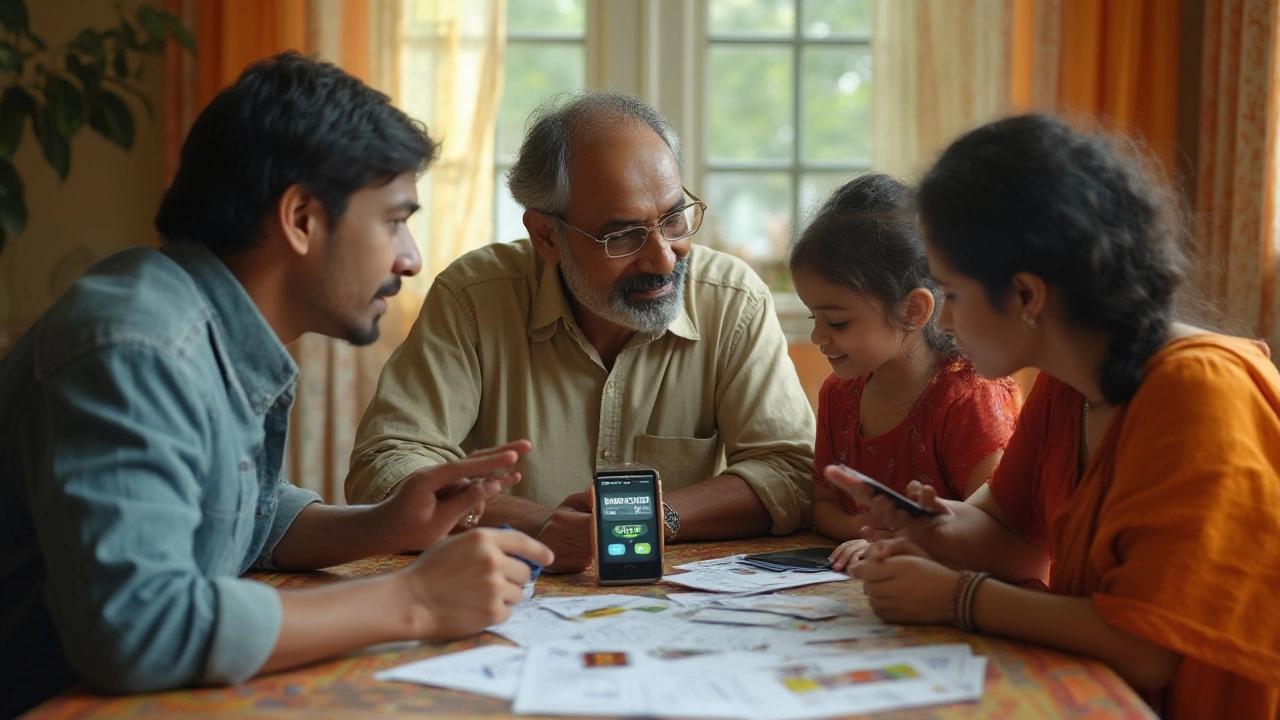You probably know at least one person who’s cut up a credit card in a moment of frustration—or maybe you’ve even been tempted to do it yourself after that one too many phone call from your bank. But will cancelling a credit card actually hurt your credit? This topic is weirdly misunderstood and packed with myths. Some folks think closing a card immediately tanks your credit score, others say it has zero impact. The truth? It’s somewhere in between, and the specifics make all the difference. Today, we’ll dig into the nuts and bolts behind how cancelling a credit card affects your credit, share some eyebrow-raising details, and give you tips you can actually use, not just finance-bro lingo. Ready? Let’s get into it.
How Your Credit Score Works (And Why Cancelling a Card Can Matter)
Most people picture their credit score like this mysterious number floating above their head. It isn’t magic, though—it’s math. The most common system is FICO, and it breaks down like this: 35% payment history, 30% amounts owed (which is your credit utilization), 15% length of credit history, 10% new credit, and 10% credit mix. So, what happens when you cancel a credit card?
When you shut down a credit card, two main credit score ingredients get stirred up: your credit utilization and your length of credit history. Credit utilization is a fancy term for how much credit you’re using compared to what you have available. Let’s make it real with an example. Julia has three credit cards, each with a $5,000 limit. That’s $15,000 in credit. She carries a balance of $3,000 each month. Her utilization rate is $3,000 / $15,000 = 20%. Now, say she cancels one card: her total limit drops to $10,000. But her balance stays $3,000, so now her utilization jumps to 30%. Lenders like to see your utilization under 30%, ideally around 10%, so that one move could easily nudge your score downward.
Now, about that length of credit history. When you cancel an old card, especially your oldest one, your average account age can go down. This doesn’t usually hurt right away—closed accounts stay on your credit report for up to 10 years if they were in good standing. But as those accounts age off, your credit “age” might shrink, and that can eventually ding your score, especially if you don’t have new or lengthy credit lines to balance it out.
Here’s something else most people don’t realize. The impact of cancelling a card is a little different for everyone. If you have only a couple cards and a short credit history, closing just one could do more harm than it’d do for someone with a thick credit file and years of positive history. That’s why Aunt Patty’s score barely budged when she chopped up her store card, but your college buddy saw his score nosedive when he axed his first-ever student credit card.
To make it extra clear, check out this breakdown of credit score factors and how closing a card could play into each:
| Credit Score Factor | Impact From Cancelling Card |
|---|---|
| Payment History | Stays the same unless you have missed payments |
| Credit Utilization | Often increases if you owe money on other cards |
| Length of Credit History | Average account age can decrease over time |
| New Credit | No direct impact, unless you open a new card |
| Credit Mix | No big effect unless your only credit card is closed |
The real kicker? Nearly half of American adults aren’t clear on how closing cards affects their credit, according to a 2024 Experian survey. And yet, this simple decision keeps biting people months or even years later.
Real Life Ways Cancelling a Credit Card Impacts Your Score
Let’s move past the theory and talk about how cancelling a credit card actually plays out for real people. Picture this: you’re about to buy a house, and in a bid to “simplify” your life, you cancel a barely-used card that’s been open for four years. You check your credit score a month later and boom, it’s down by 30 points—right before you meet with your mortgage broker. Not fun.
This isn’t just a random horror story. Say you have a $10,000 limit across two cards, and both are at $0 balance. If you cancel one, your available credit is chopped in half—instantly doubling your utilization if you ever put a balance on the surviving card. Even a small purchase can push your utilization to a dangerous level.
But here’s the weird twist: if you never use the card, and it has no unique features (like being your oldest or only card), closing it might not be a big deal. Lenders like to see responsible use, but unused or dormant cards can sometimes be a risk, especially if fees are involved or the card is at risk of fraud from inactivity. (Trust me, Whiskers managed to knock a long-unused card off the table, and I only noticed because the card issuer sent a warning—sometimes even cats have better credit instincts!)
Careful with store cards too. They usually come with high interest, low limits, and can tempt you into overspending for points or discounts. But closing a store card you’ve had for years could lower your average account age. That’s a trade-off worth pausing to consider.
If your card comes with an annual fee you’re not willing to pay, some banks will let you downgrade to a no-fee version of the card rather than outright closing it. This keeps your account age and available credit untouched while shedding that fee.
Here’s a tip you won’t see on most finance blogs: Buy a cup of coffee with your oldest card every few months and pay it off in full. This tiny bit of activity keeps the account alive and your credit score healthy, without adding debt. It’s like giving your score a vitamin boost.
And don’t forget about joint cards. If you have a card with an ex, closing it affects both users’ credit files—sometimes in ways that surprise people. If your ex keeps the account open and racks up debt after you’re removed, your credit protection only goes so far. Always check the terms and get everything in writing.

Smart Moves to Make Before Closing Any Credit Card
Let’s say you really want to cancel a credit card—maybe the annual fee isn’t worth it, or you hate the bank’s customer service. Here’s how to do it with your credit score intact.
- Check your balances. Pay off the card in full before closing. An account closed with a remaining balance can get messy fast, and some issuers even slap extra fees on dormant debt.
- Pull your credit report. Make sure the account is in good standing and all your info is accurate. You can get one free report every year from each bureau at AnnualCreditReport.com.
- Ask your issuer to convert, not cancel. See if you can switch to a no-fee or low-fee option to keep the account open and the history alive. Many banks will do this with a simple phone call.
- Time it right. If you’re about to apply for a mortgage, car loan, or big apartment lease, wait until after those applications before closing any cards. Lenders love stable credit profiles.
- Use your other cards smartly. After closing a card, avoid racking up balances on your remaining cards—otherwise, your utilization shoots up, and so does your risk profile.
- Set a reminder in your phone for the card’s next annual fee or inactivity deadline. That way, you never forget to use the card periodically or close it before you’re charged money you don’t want to spend.
- If you’re worried about overspending, ask your bank to lower your limit rather than close the account altogether. That way, you get the control you want without extra dings to your score.
Advanced tip: If you shop around and open a new card to take advantage of better rewards, try to keep older cards open, too—even if you barely use them. This cushions your utilization and supports your score, especially if your oldest lines of credit are still in good shape.
Be sure to get written confirmation that an account is closed at your request. Errors can pop up later, and sometimes accounts show up as "closed by lender"—which doesn’t look as pretty to future lenders. Save paperwork for your records, just in case any disputes show up.
When Cancelling Might Actually Make Sense (And When to Hold Back)
Now, there are times when closing a credit card is just the smart move, even if your credit score takes a tiny hit. If your card's annual fee doesn't match what you’re getting—say, you never travel and your card’s only perks are in fancy airport lounges—dumping it can free up money and mental space. Safety also matters: if you’ve spotted fraud, or if an old account is at risk (maybe you lost the card or it’s a joint account gone sour), close it and don’t look back. Just don’t do it in a panic—plan the timing instead.
If you’re rebuilding your credit, closing accounts isn’t usually the right step unless you’re forced to. Credit bureaus love seeing a long, positive credit history, even if it comes from a $200 secured card you opened three years ago. Those “starter” cards can be your future score’s secret weapon.
On the flip side, there’s absolutely no rule that says you have to keep every card forever. If you have too many and struggle with temptation, simplify. Just do it the smart way: keep your oldest and highest-limit cards open, and weed out new or little-used ones slowly over a year.
There’s a persistent myth that closing a card immediately wipes your credit clean of that account’s history—nope, that’s not how it works. Closed accounts in good standing typically stay on your report for a decade in the US. They keep “aging” on your file as part of your history, even though you can’t use them. But after 10 years, poof—they disappear, and that’s when the average age could take a real hit.
The best way to think about it? Your credit profile is like caring for a plant—or a slightly needy cat. Consistency, gentle maintenance, and the occasional treat keep everything healthy, while sudden snips can cause temporary shock. Your credit score recovers from small dips, but repeat shocks or big chopping can leave you starting from scratch.
No matter what, make changes to your credit file with intention—think long-term, weigh your options, and remember that the highest *credit score* is rarely as important as your ability to live comfortably, free from unnecessary fees, or overspending traps. And hey, take it from someone who learned the hard way after seeing a sudden dip: a single card closure isn’t the end of the world, but it’s always good to know exactly what you’re risking before reaching for the scissors.


